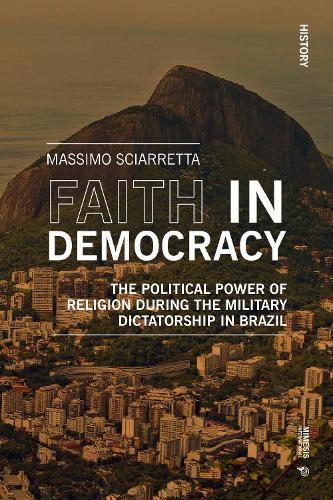Readings Newsletter
Become a Readings Member to make your shopping experience even easier.
Sign in or sign up for free!
You’re not far away from qualifying for FREE standard shipping within Australia
You’ve qualified for FREE standard shipping within Australia
The cart is loading…






The current work historically reconstructs the role played by the Brazilian Catholic Church during the military dictatorship that governed the country from 1964 to 1985. If in Latin America the denial of identity and rights has for centuries gone hand in hand with the role played by the Church in Brazil, in the twenty years covered by the book the national Catholic Church managed to establish itself as the only democratic bastion against the army, not only acting to safeguard trampled human rights but also to criticise the situaion. Thanks to the influence of liberation theology, the church gave priority to the intellectual progress of the working classes, developing one of the largest operations of non-governmental popular education in the contemporary era, which - to cite Antonio Gramsci - provided an opportunity for the subaltern classes who want to educate themselves in the art of government .
$9.00 standard shipping within Australia
FREE standard shipping within Australia for orders over $100.00
Express & International shipping calculated at checkout
The current work historically reconstructs the role played by the Brazilian Catholic Church during the military dictatorship that governed the country from 1964 to 1985. If in Latin America the denial of identity and rights has for centuries gone hand in hand with the role played by the Church in Brazil, in the twenty years covered by the book the national Catholic Church managed to establish itself as the only democratic bastion against the army, not only acting to safeguard trampled human rights but also to criticise the situaion. Thanks to the influence of liberation theology, the church gave priority to the intellectual progress of the working classes, developing one of the largest operations of non-governmental popular education in the contemporary era, which - to cite Antonio Gramsci - provided an opportunity for the subaltern classes who want to educate themselves in the art of government .